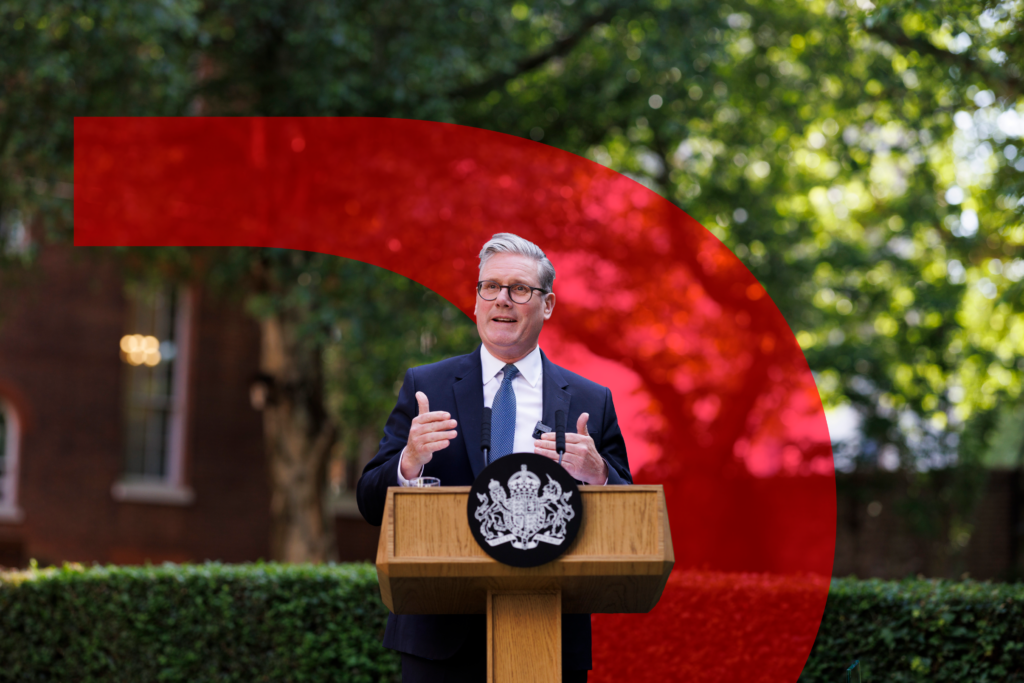A memoriam to General Norman Schwarzkopf, Commander of coalition forces during the first Gulf War, and accomplished military communications strategist.
General Norman Schwarzkopf’s death late last year brought to mind my time covering his command of Coalition forces as a reporter for NBC News during what we now think of as the “first” Gulf War.
Schwarzkopf will be remembered for his brilliance as a military Commander-in-Chief during that conflict, but his skills as a communications strategist are probably not as widely known. A few words here to set the record straight.
Before the commencement of ground operations against Iraqi forces in Kuwait there were a number of air and sea operations that made news. One of these was a firefight in a town called Khafji, just over the Iraqi border in Saudi Arabia.
As I remember the sequence of events, Coalition troops who had taken up positions in the town were ambushed by Iraqi troops in a cross-border raid, but the Iraqi advances were then reversed when the allies counter-attacked and re-took the town. It was the first real ground battle of the war, and the casualties included a number of US and Saudi soldiers. With the whole world watching developments in the Middle East, it was big news, and the US military command in Riyadh scheduled a press briefing with General Schwarzkopf for the following day.
At about the same time as the Battle of Khafji, a Coalition air assault on an Iraqi oil storage facility had succeeded in destroying a strategic target, but had also, inadvertently, created an oil spill that was fouling a several-square-mile patch of the Persian Gulf. An American newspaper had picked up the oil spill story and claimed that the US Navy had been asked to help manage the spill but had refused. Khafji would certainly be Topic A at the press briefing, but the oil spill story would probably also get a mention.
The night before the General’s press conference, I got a phone call in my hotel room from Schwarzkopf’s press attaché, Ron Wildermuth.
“The General would be very grateful if you’d ask a specific question at tomorrow’s briefing” he said.
I had to figure that he’d already tried and failed to get other, more honorable journalists to ask the General’s planted question, so I (briefly) searched my conscience.
“OK” I said. “What does he want me to ask?”
“The General would like you to ask him whether the US Navy refused a request to help with the oil spill” Wildermuth said.
“No problem” I said.
At the press conference the next day, Schwarzkopf put on an impressive performance. He added new details to what had previously been reported about the Battle of Khafji, and he brought the press corps up to date on the air war.
“I’ve got time for a few questions,” he said, and pointed (too quickly, I thought) at me.
“General” I said, “As you know, there have been media reports that the US Navy refused a request to assist with cleanup of that oil spill that took place recently in the Gulf. Any comment?”
Schwarzkopf looked at me as if this was the craziest idea he’d ever heard. Then he rocked back on his heels and said, “That’s the most ridiculous piece of bovine scatology I’ve ever heard in my life!”
He’d found a polite way of saying “bullshit,” and he got a good laugh from the press and his fellow officers. He then went on to correct the record of events in the Gulf, and moved on to other questions.
I thought about our brief exchange afterwards and I realised that I’d been just a small piece in a neat little bit of military communications strategy.
Schwarzkopf was angry about a report that criticised — and in his view, misrepresented — the actions of a naval vessel under his command, and he wanted to correct the record. He knew that most, maybe all of the questions he’d be asked at the briefing would be about Khafji — the big story of the day — but he wanted to make sure he’d be able to make his point about the Navy and the oil spill.
So he got his press attaché to find a stooge to ask a question about the incident so he would be sure to get his answer on the record. But then he must have thought, “What if I answer the question, but my answer gets cut?” At which point he came up with a clever soundbite he knew we couldn’t resist.
Schwarzkopf’s communications strategy worked perfectly: all three networks used the “bovine scatology” clip that night (NBC led with it), and CNN played it on the hour for most of the day. Mission Accomplished.
Charles McLean heads Portland’s New York office.






